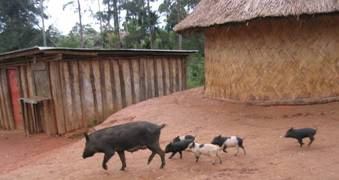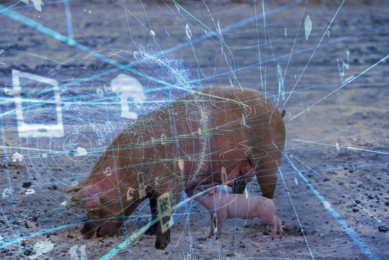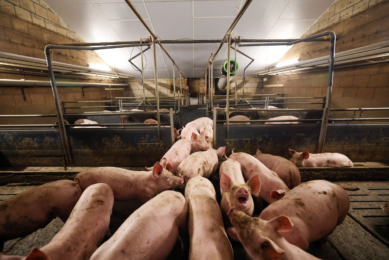Sweet potato silage for PNG pigs

Pig farmers in Papua New Guinea (PNG) will now be able to use a new methodology for developing and preserving improved feeds from sweet potato or kaukau which can be stored over longer periods before feeding pigs.
The methodology, known as “sweet potato silage for pig feed”, will be officially released to the PNG farming community today during the annual agricultural innovations show organised by National Agriculture Research Institute (NARI), at its Sir Alkan Tololo research centre at Bubia.
The silage technology is a result of NARI’s research and development effort by its livestock programme to improve efficient use of feed by commercial pig growers.
Director for agriculture production systems improvement, Dr Sergie Bang, said kaukau silage developed through the technology could be stored for up to seven months with very simple equipment and relatively-low material costs.
Bang said the technology would also improve the digestibility of feed, maintain good growth of pigs and potentially improve carcass quality and economic returns.
He said the process of silage worked for kaukau in the trials conducted by NARI over the last few years, under both lowland and highland conditions.
“Fermentation acidity was measured at pH 4, which is an indication of high grade silage quality and when fed to pigs, kaukau silage would improve the digestibility of all feed nutrients,” he said.
In Papua New Guinea people typically live in villages or dispersed hamlets which rely on the subsistence farming of sweet potatoes and taro. The principal livestock in traditional PNG is the oceanic pig (Sus papuensis).











